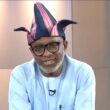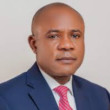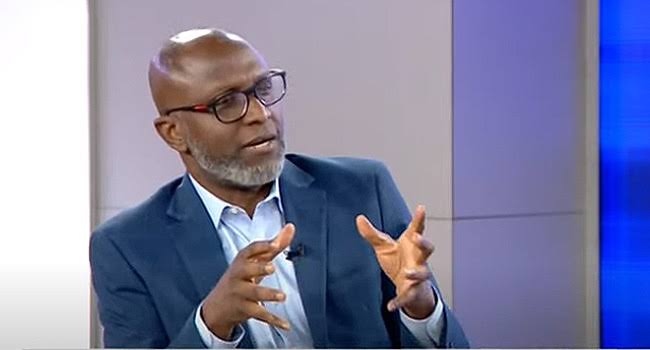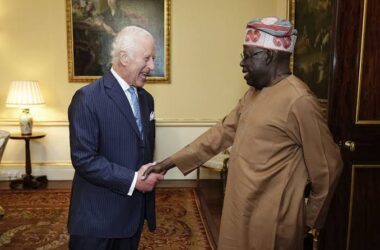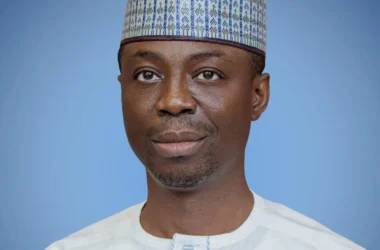- The recent financial audits released by the Nigerian National Petroleum Company Limited (NNPCL) contained information that is different from what the previous audits had indicated, calling into question the integrity of the auditors.
This assertions was made by oil and gas expert Henry Adigun on the soaring talk show programme Inside Sources With Laolu Akande on Friday.
A significant point of contention raised by Adigun was the inconsistency in NNPCL’s reported investments in the Dangote Refinery. “Last year, in its audited report, they said they invested N2 billion in the Dangote Refinery. This year, they said N1.6 billion. Who did that audit?” he questioned. Such discrepancies raise doubts about the accuracy and reliability of the reported figures. Adigun further criticized the company’s reactive approach to clarifying these discrepancies: “Until Dangote came out and said, ‘No, you’ve only invested 7.4% in my refinery,’ you now released a press statement,” he noted, suggesting that NNPCL is more inclined to correct misinformation after it has been publicly challenged rather than ensuring accuracy from the outset.
Laolu Akande, the Host of Inside Sources “I think it’s important to make the point that the auditors of NNPC, that it’s important for you also to give us an explanation. Nigerians deserve to know why what was audited last year is different from what was audited this year. It’s not just about NNPC… It’s not just about government. And we have asked the President to find out what is going on in NNPC. But, it’s also about us as a people. The accountants that are doing these are Nigerians, not government agents. It’s important for them to clarify what is going on.”
Adigun, renowned for his incisive analysis of Nigeria’s oil and gas sector, began by referencing past audit practices to highlight ongoing issues within NNPCL. He pointed to a 2014 report audited by PricewaterhouseCoopers (PwC), which was riddled with numerous disclaimers—eleven, to be exact. “There was an NNPC report in 2014 by PwC, the auditors, and the disclaimers were like 11,” Adigun stated. He recounted a conversation with a former PwC auditor who remarked, “If I have to audit any place and I put enough disclaimers like these on my report, then it’s not worth it.”
Adigun emphasized the importance of auditor integrity, noting, “Why put your name on something you can’t vouch for? By the time you lend your name to an audit, you’re lending your integrity, reputation to the audit. Once you now put so many disclaimers you’re just saying ‘Look, take this with a punch of salt.’” This critique underscores a fundamental issue: the proliferation of disclaimers can undermine trust in audit reports, suggesting that auditors themselves question the reliability of the information presented.
Transitioning to the current year’s audited report, Adigun expressed skepticism about NNPCL’s claims of progress towards transparency. “Let’s say they’re moving towards transparency. They’re not there yet. Transparency isn’t what I tell you. Transparency is what you need to know that I tell you,” he remarked. This distinction highlights the difference between selective information sharing and genuine openness, where the latter requires comprehensive and verifiable disclosure of all pertinent details.
Adigun also scrutinized how NNPCL accounts for its profits, particularly questioning whether revenues from Nigeria LNG Limited (NLNG)—where NNPCL holds a government-shareholder position—are included. “Are we adding NLNG money, which you’re a shareholder on behalf of the government, into this profit? Because LNG is the one that supplies these other countries you’re talking about, not you yourself (the NNPCL),” he asked. According to Adigun, a truly transparent financial statement would delineate the earnings of each subsidiary and partner entity separately, thereby providing a clear and accurate picture of NNPCL’s financial health.
In his concluding remarks, Adigun warned of the dangers posed by selective disclosure and inconsistent reporting. “What we’re seeing now is what they want us to see,” he asserted. “Because when it comes to numbers, numbers are very funny.” This statement underscores the necessity for rigorous, independent audits that provide an accurate reflection of a company’s financial status, free from manipulation or selective reporting.
Adigun’s critique of NNPCL’s audited reports calls for a higher standard of transparency and accountability within one of Nigeria’s key state-owned enterprises. His insights highlight the critical need for consistent, reliable, and comprehensive financial reporting to restore public trust and ensure that stakeholders have an accurate understanding of the company’s operations and financial health.
As NNPCL continues to evolve and seek greater transparency in its operations, the voices of experts like Henry Adigun serve as a crucial reminder of the importance of integrity in financial reporting. For NNPCL to build and maintain trust with the Nigerian public, investors, and international partners, it must address these transparency issues head-on, ensuring that future audits are conducted with the utmost rigor and honesty, devoid of unnecessary disclaimers and discrepancies.
The ongoing debate surrounding NNPCL’s financial disclosures highlights the broader challenges faced by state-owned enterprises in maintaining transparency and accountability. As stakeholders demand greater openness, NNPCL’s response to these criticisms will be pivotal in shaping its reputation and effectiveness in Nigeria’s vital oil and gas sector.



